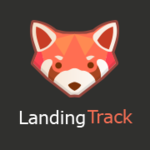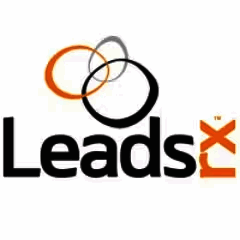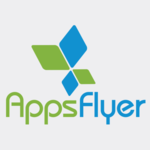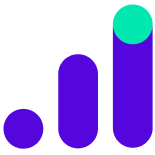Yes, most marketing attribution software is accessible across numerous devices and platforms. This is significant because it enables organizations to monitor and evaluate client interactions across several platforms, including desktop, mobile, and social media. This multi-device and cross-platform accessibility not only provides a comprehensive perspective of user behavior, but it also ensures that businesses receive a seamless and uniform tracking experience.
List of Best Marketing Attribution Software
GroundTruth is a media platform designed to increase in-store traffic and drive tangible business outcomes through targeted advertising techniques. Our range of solutions spans across various platforms such as mobile, desktop, CTV/OTT, and more, ensu...Read More GroundTruth
LandingTrack is an advanced affiliate tracking software designed to simplify campaign management and increase productivity for affiliate marketers, agencies, and media buyers. With its automation of source optimization, event tracking, and seamless i...Read More LandingTrack
UTM.io is platform designed to simplify the creation, collaboration, and management of UTMs for your team. Eliminate the hassle of complicated spreadsheets and track your campaigns accurately in your analytics. With instant UTM tracking, optimize you...Read More UTM.io
Prolyncs is a business management solution that elevates your online presence and simplifies your appointment scheduling. With Prolyncs, you have the power to efficiently launch and oversee your business, while expanding your client base and maximizi...Read More Prolyncs
Lifesight - the leading AI-driven marketing measurement platform and cutting-edge CDP. Engineered for the privacy-driven landscape, Lifesight delivers a sustainable growth solution. Harnessing advanced technology and unmatched capabilities, Lifesight...Read More Lifesight
Objective Partners is a groundbreaking software company that is revolutionizing the industry with its innovative solutions. Our cutting-edge approach not only enhances operational effectiveness, but also sets the bar for technological progress and in...Read More Objective Partners
Rockerbox, the premier marketing measurement platform that elevates your advertising tactics with accurate, multi-channel data analysis. Trusted by top brands, Rockerbox enables users to convert marketing data into actionable insights, leading to sma...Read More Rockerbox
AdRoll, the premier marketing solution designed to catalyze your advertising efforts and drive business growth. With its powerful targeting and automation features, AdRoll enables you to reach your desired audience seamlessly across multiple channels...Read More AdRoll
Wizaly is a marketing analytics platform designed to enhance attribution accuracy for complex customer journeys. Our advanced tools, quick implementation, and tailored support prioritize data privacy compliance. Our platform allows businesses to effe...Read More Wizaly
LeadsRx, the premium Lead Management tool that provides precise marketing attribution. With its advanced features, LeadsRx accurately evaluates the effectiveness of all your marketing endeavors, from ad clicks to social media integration and multi-ch...Read More LeadsRx
AppsFlyer is a mobile attribution and marketing analytics software that empowers businesses to attain data-driven insights while respecting customer privacy. Its powerful capabilities enable accurate measurement, fraud detection, and tailor-made user...Read More AppsFlyer
Hive9, powered by BrandMaker and Allocadia, is solution for optimizing your marketing strategies. With advanced capabilities such as automated workflows and resource management, this platform ensures your success in the constantly evolving marketing...Read More Hive9
Adjust is a analytics and measurement solution designed to boost app growth through cutting-edge data insights and automatic functionalities. With its robust suite of tools, this platform enables you to optimize ad performance and identify fraudulent...Read More Adjust
Factoris Measurements is a marketing analytics and attribution tool. Gain a comprehensive understanding of your marketing efforts and minimize ad wastage with data-driven insights. This powerful platform allows you to optimize campaigns in real-time,...Read More Measurements by Factori
EasyInsights is a marketing analytics solution designed specifically for marketers, and with a strategic focus on advertising agencies. Say goodbye to tedious reporting and dashboarding processes - this intuitive tool saves time and elevates client r...Read More EasyInsights
AnyTrack, a top-of-the-line software that effortlessly integrates with your marketing tools, providing real-time tracking and comprehensive analytics. With AnyTrack, you can optimize your campaigns, simplify data management, and gain valuable insight...Read More AnyTrack
Windsor.ais Attribution Insights platform enables marketers to effortlessly merge media, analytics, and CRM data to obtain a holistic view of the customer journey. By leveraging these insights, marketers can boost their ROI by up to 40%, enhancing th...Read More Windsorai
ClearoutPhone, this software designed to provide reliable phone number validation services. In mere seconds, our real-time process verifies the validity, line type, network carrier, and location of users, ensuring efficient and accurate communication...Read More ClearoutPhone
Learn More About Marketing Attribution Software
- What is Marketing Attribution Software?
- What Are the Recent Trends in Marketing Attribution Software?
- Benefits Of Using Marketing Attribution Software
- Important Factors To Consider While Purchasing Marketing Attribution Software?
- What Are The Key Features To Look For In Marketing Attribution Software?
- Why Do Businesses Need Marketing Attribution Software?
- How Much Time Is Required To Implement Marketing Attribution Software?
- What Is The Level Of Customization Available In Marketing Attribution Software?
- Which Industries Can Benefit The Most From Marketing Attribution Software?
- Conclusion
What is Marketing Attribution Software?
Marketing Attribution Software, also known as multi-touch attribution software, is a sophisticated technology that allows firms to precisely measure the effectiveness of their marketing initiatives. This software employs data-driven models and algorithms to provide credit for the different touchpoints that lead to a conversion or sale. Simply said, marketing attribution software assists businesses in determining which marketing channels, campaigns, and approaches are more effective in terms of conversions and revenue.
It provides businesses with a holistic perspective of their customer journey, accounting for all touchpoints with which a consumer engages prior to completing a purchase. Marketing attribution software delivers insights into each marketing channel's performance and impact on the consumer's decision-making process by recording and analyzing data from many touchpoints such as social media, emails, online adverts, and website visits. One of the primary advantages of adopting marketing attribution software is that it enables firms to make data-driven decisions when allocating marketing budget.
It assists businesses in determining which channels and campaigns are delivering the most return on investment, allowing them to optimize their marketing efforts and increase conversion rates. Furthermore, marketing attribution software enables organizations to better identify their target demographic. By analyzing client behavior across several touchpoints, it provides insights into which channels and messaging resonate most with their target demographic, allowing for the development of more effective marketing plans.
What Are the Recent Trends in Marketing Attribution Software?
In recent years, marketing attribution software has gained popularity as a critical tool for firms seeking to correctly track and measure the success of their marketing initiatives. Marketing attribution software trends evolve in tandem with the digital ecosystem.
We'll look at some of the most recent trends in this sector and how they can help your organization.
1. Multiple-Touch Attribution: Traditionally, marketing attribution relied on a single touchpoint to assess a campaign's success. However, with consumers interacting with several touchpoints before making a purchasing choice, multi-touch attribution has emerged as a prominent trend in marketing analytics software. This technique takes into account all of the touchpoints in a customer's journey and distributes credit to each one, giving a more complete picture of a marketing campaign's efficacy.
2. Integration Of Machine Learning And Artificial Intelligence: With so much data available, organizations may struggle to make sense of it all. This is where machine learning and artificial intelligence (AI) come in. The most recent marketing attribution software combines these technologies to analyze massive volumes of data and provide insights into which channels and campaigns are generating the most conversions. This allows organizations to make data-driven marketing decisions.
3. Cross Channel Attribution: In today's omnichannel world, consumers interact with brands across a variety of channels, both online and offline. Cross-channel attribution takes into account all of these touchpoints to create a comprehensive picture of the consumer experience. This approach is gaining popularity since it enables businesses to better understand their consumers' behavior and the impact of various channels on purchasing decisions.
4. Real Time Tracking: With customers spending the majority of their time online, businesses can no longer afford to wait weeks or even days to assess the impact of their marketing activities. Real-time monitoring is a growing trend in marketing attribution software that enables firms to monitor and measure campaign success in real time. This allows them to make quick changes and enhance their marketing strategy to achieve better outcomes.
5. Integration Of CRM And Marketing Automation Platforms: The integration of marketing attribution software with customer relationship management (CRM) and marketing automation platforms is gaining popularity. This integration enables the continuous flow of data, resulting in a single view of the customer and their interactions with the business. It also allows organizations to follow the whole customer journey, from acquisition to conversion, which provides useful insights for focused marketing campaigns.
Benefits Of Using Marketing Attribution Software
Marketing attribution software is a strong tool that allows firms to track and analyze the impact of their marketing campaigns. In today's digital landscape, when customers connect with a brand across various touchpoints, it is critical to evaluate which marketing activities lead to conversions and revenue. This is where marketing attribution software comes in.
There are various advantages to adopting marketing attribution software, including:
1. Accurate Attribution: Marketing attribution software employs sophisticated algorithms to precisely identify sales and conversions to specific marketing initiatives. This enables organizations to accurately calculate the ROI of their marketing activities and make data-driven decisions.
2. Data Consolidation: Marketing attribution software consolidates all marketing data into a single platform, making it easier to evaluate and understand. This saves marketers time and effort when manually gathering data from various sources.
3. Cross-Channel Attribution: Marketing attribution software can track and credit conversions from both digital and offline channels. This provides a comprehensive perspective of the client journey and enables organizations to determine which channels are most effective.
4. Targeted Optimization: By knowing the impact of each marketing touchpoint, firms may improve their marketing efforts to better reach their target demographic. This ensures that marketing efforts are directed to the appropriate audience, optimizing return on investment.
5. Better Money Allocation: Accurate attribution allows firms to better allocate their marketing money to the most productive channels, campaigns, and strategies. This reduces guesswork and enables more informed financial decisions.
6. Improved Collaboration: Marketing attribution software serves as a consolidated platform for all marketing departments, allowing for more effective collaboration and communication. This results in a more streamlined and effective marketing plan.
Important Factors To Consider While Purchasing Marketing Attribution Software?
When it comes to selecting marketing attribution software, there are a few crucial elements to consider before making a purchase. These variables will assist you in evaluating several possibilities and selecting the software that best matches your individual business requirements.
Here are the key aspects to consider while selecting marketing attribution software:
1. Business Goals: Understanding your company's goals is the first step in picking marketing attribution software. Do you want to enhance sales, improve customer retention, or obtain insight into your marketing efforts? Knowing your specific goals will assist you in determining the features and capabilities that are most relevant to your firm.
2. Attribution Models: Marketing attribution software use several attribution models to allocate credit to various channels and touchpoints along the customer journey. It is critical to understand the various models available (e.g., first touch, final touch, multi-touch) and select one that is appropriate for your company objectives and attribution approach.
3. Integration: Your marketing attribution software should be compatible with your current marketing and analytics solutions. This will enable a smooth flow of data and provide a more complete picture of your marketing efforts. Check the software's list of integrations to ensure that it is compatible with your existing tools.
4. Customisation And Flexibility: Each firm has its own set of requirements and operations. Look for marketing attribution software that offers customizable and flexible reporting, data visualization, and attribution models. This will ensure that the software meets your specific requirements and is adaptable to any changes in your marketing approach.
5. Data Quality And Accuracy: The accuracy and quality of the data used by the program are critical to the success of your attribution initiatives. Inquire about the data sources used by the software, how the data is gathered, and what safeguards are in place to assure accuracy. Look for software that has data cleansing and deduplication features to safeguard the integrity of your data.
6. Cost And ROI: Marketing attribution software prices vary widely, with some giving a monthly subscription and others demanding a one-time fee. Before making a purchase, evaluate the total cost and the prospective return on investment (ROI). Make sure to include any additional expenditures, such as setup fees or continuing support.
7. Customer Assistance And Training: As with any product, access to dependable customer assistance is essential. Look for a vendor who provides comprehensive customer support and training to ensure you get the most out of the program. This ensures a seamless rollout and can help fix any issues that may emerge.
By taking these aspects into account, you will be able to compare several marketing attribution software choices and select the one that best meets your company's requirements. Remember to conduct extensive study and analyze several choices before making a final decision. With the appropriate marketing attribution software, you can acquire vital insights into your marketing activities and make data-driven decisions that will drive business success.
What Are The Key Features To Look For In Marketing Attribution Software?
Marketing attribution software is an essential tool for firms that want to accurately attribute credit to their marketing activities. With the ever-changing digital world, it is critical for organizations to analyze the impact of marketing campaigns on client acquisition and retention. When it comes to selecting the best marketing attribution software, you should check for a few crucial aspects.
Here are the major features to consider when considering the various options:
1. Cross-Channel Monitoring Capabilities: In today's marketing landscape, customers interact with organizations via several channels, including social media, email, and websites. Your attribution software should be able to measure customer touchpoints across all of these channels, providing you with a comprehensive perspective of your marketing performance.
2. Customizable Attribution Models: Each firm has a distinct sales funnel, and no single attribution model can accommodate all. Look for software that allows you to customize attribution models based on your business goals and sales process. This enables you to appropriately award credit to various touchpoints depending on their impact on your customer's journey.
3. Real-Time Reporting And Analytics: The best marketing attribution software should offer real-time reporting and analytics, allowing you to track and assess the effectiveness of your marketing initiatives as they occur. This enables you to make data-driven decisions and optimize your marketing initiatives in real time.
4. Integration With Major Metrics And Platforms: Your attribution software should be able to work with popular metrics and platforms like Google Analytics, CRM systems, and ad platforms. This will provide a more comprehensive view of your marketing efforts and help you comprehend the entire customer experience.
5. Customer Journey Mapping: Customer journey mapping is critical for understanding how your marketing channels interact to create conversions. Look for software that visualizes the customer journey, allowing you to determine the most effective touchpoints and optimize your marketing plan accordingly.
6. A/B Testing Capabilities: A/B testing is essential for determining the most effective approaches and strategies for your marketing efforts. Ensure that your attribution software supports A/B testing, which allows you to test several versions of your advertising and determine which performs best.
7. Ease Of Use: Finally, the usability of the marketing attribution software must be considered. A user-friendly interface and intuitive design will help you explore and comprehend your data, allowing you to make more educated decisions.
Why Do Businesses Need Marketing Attribution Software?
Businesses today operate in a quickly changing and complicated marketing landscape, with various touchpoints and channels involved in a customer's path to make a purchase. To ensure the success of their marketing initiatives, firms must understand how each touchpoint and channel drives conversions. Here's where marketing attribution software comes in.
Marketing attribution software is a powerful tool that enables firms to track and analyze the impact of their marketing operations across many touchpoints, delivering important insights and data for informed decision-making. Businesses that precisely attribute conversions to specific marketing initiatives may optimize their marketing strategy, distribute budgets more effectively, and ultimately create higher ROI.
One of the primary advantages of marketing attribution software is its ability to provide a complete picture of the client journey. Advanced attribution models enable organizations to track a customer's interactions with their brand across several touchpoints, such as internet ads, social media, email campaigns, and other marketing channels.
This enables them to better understand their customers' behavior and interests and customize their marketing efforts appropriately, resulting in more relevant and effective campaigns. Additionally, marketing attribution software assists firms in determining the most efficient and cost-effective methods for boosting conversions. Businesses that understand which channels and touchpoints drive the most value may deploy their resources and finances more wisely, resulting in higher ROI and overall business success.
Furthermore, marketing attribution software prevents the possibility of double-counting conversions or attributing them to a single touchpoint. It combines cognitive algorithms and data-driven insights to precisely credit conversions to the appropriate channels, giving organizations a clear and unbiased picture of the effectiveness of their marketing efforts.
How Much Time Is Required To Implement Marketing Attribution Software?
The time required to establish marketing attribution software varies according on the program and the intricacy of your marketing campaigns. On average, the implementation procedure can last from a few weeks to a few months. During this period, you will need to collect and arrange all necessary data sources, integrate them with the software, and set up the attribution rules.
This may also include teaching your team how to use the software and establishing any relevant tracking codes. It's vital to remember that the initial setup isn't a one-time event; continuing maintenance and modifications may be required as your marketing methods evolve. However, maintenance takes substantially less time than implementation.
To guarantee a seamless and efficient implementation, it is advised that a committed team member or external expert who is familiar with both your business and the software manage the process. Finally, the time spent adopting marketing attribution software can provide useful insights into your marketing efforts and improve decision-making for future campaigns.
What Is The Level Of Customization Available In Marketing Attribution Software?
Marketing attribution software provides varied levels of customisation to meet firms' individual needs and goals for tracking and assessing their marketing activities. These levels of customization can have a significant impact on the software's effectiveness and accuracy, making it an important consideration for firms when selecting a marketing attribution solution.
At the most fundamental level, most attribution software allows customers to design their attribution models, which govern how credit is awarded to each touchpoint in a customer's journey. This allows firms to choose from a variety of models, including first touch, last touch, linear, and even custom models, to better reflect their own marketing approach.
Moving up the customizing ladder, some attribution software enables for the integration of many data sources, including CRM, Google Analytics, and social media platforms, providing firms with a more comprehensive view of their marketing efforts. This level of personalization enables a more precise and thorough examination of which touchpoints drive conversions and which do not.
Furthermore, many marketing attribution solutions allow firms to specify bespoke attribution windows, which define the duration within which a touchpoint can be connected to a transaction. This functionality is especially valuable in sectors with long sales cycles, where touchpoints in the early stages of the customer journey can have a big impact on the ultimate conversion.
Furthermore, some advanced attribution software allows businesses to customize attribution rules, providing them control over how credit is awarded to touchpoints based on certain conditions or actions. This level of customization allows organizations to personalize attribution to their specific marketing strategy and goals. In addition to these features, many marketing attribution solutions provide configurable reports and dashboards, allowing firms to specify which metrics and KPIs to track and display. This level of personalization allows firms to focus on the data that is most important to their marketing performance and objectives.
Which Industries Can Benefit The Most From Marketing Attribution Software?
Marketing attribution software is a strong tool that may help a variety of businesses. From e-commerce to healthcare, this software has the ability to boost marketing efforts and produce outcomes for organizations of all sizes. The retail business stands to benefit substantially from Marketing Attribution Software. With the development of online shopping and growing competition, merchants must have a comprehensive understanding of their marketing strategies and the success of each channel.
Retailers can use Marketing Attribution Software to track and analyze customer behavior across many touchpoints, allowing them to determine which channels drive the most sales and adapt their marketing strategy accordingly. Marketing Attribution Software can also aid the banking sector. Financial institutions rely significantly on marketing to recruit and keep consumers.
Marketing Attribution Software enables them to effectively measure the impact of their marketing efforts on client acquisition, engagement, and conversion. This data can also aid with customisation and customer targeting, resulting in a higher return on investment. The travel and hospitality business is also a good fit for Marketing Attribution Software. This industry is significantly reliant on digital marketing to attract and engage clients.
Businesses in this sector can use Marketing Attribution Software to track customer touchpoints and assess the impact of marketing efforts on bookings and revenues. This information can also help them determine the most effective channels and messaging for reaching out to potential clients. Additionally, Marketing Attribution Software can be quite valuable to healthcare firms.
As the healthcare business continues to digitize, these institutions must have a strong online presence as well as effective marketing techniques to attract and retain patients. Marketing Attribution Software can assist healthcare businesses in tracking and measuring the efficacy of their campaigns, allowing them to direct their marketing money to the most successful channels.
Finally, Marketing Attribution Software can be very beneficial to the education sector. With rising competition and a transition to digital marketing, educational institutions must have a clear picture of which marketing initiatives drive enrollments. Marketing Attribution Software can provide vital insights into campaign success, enabling data-driven decisions to recruit and retain students.
Conclusion
Finally, when it comes to selecting the best marketing attribution software for your organization, there are a few crucial elements to consider. These include your budget, the features and capabilities you require, and the amount of support and customisation offered by the vendor. Before making a decision, you should evaluate your company's objectives and goals, as well as conduct extensive research and comparisons of various options.
Look for software that includes comprehensive tracking and reporting capabilities, as well as synergies with your current marketing tools. Consider a platform that provides straightforward and user-friendly dashboards and visualizations to help you evaluate and analyze your attribution data. Check for the ability to tailor attribution models to your own business model and marketing initiatives.
Don't forget to consider the quality of support and training available to guarantee that the software is successfully implemented and adopted within your firm. Finally, the correct marketing attribution software can help you effectively assess and optimize your marketing activities, resulting in higher conversions, revenue, and overall business success. So, take your time, conduct your research, and make an informed decision to achieve the greatest results for your business.
Marketing Attribution Software FAQ's
Can Marketing Attribution Software Be Accessed Across Multiple Devices And Platforms?
Is Marketing Attribution Software Future-Proof And Adaptable To Emerging Technologies Like AI, Blockchain Or IoT?
Marketing Attribution Software is intended to adapt to changing technology while remaining future-proof. As digital marketing evolves, so does the software, maintaining its relevance and effectiveness.
Marketing Attribution Software's strong analytics capabilities enable it to include data from AI, blockchain, and IoT platforms, providing accurate insights and optimizing marketing campaigns. This makes it a crucial tool for firms who want to stay ahead of the competition and maximize their return on investment.
Is There A Free Trial Offered To Assess Marketing Attribution Software Before Committing?
Yes, many marketing attribution software vendors provide a free trial period to evaluate their product before making a commitment. This enables organizations to test the software and its features to see if they satisfy their requirements and objectives. Free trials often last 14 to 30 days and allow access to full or most of the software's capabilities. It is recommended that you use free samples to check that the software is a good fit for your organization before making a purchase.
Does Marketing Attribution Software Offer Data Security Features And Meet Regulatory Compliance Standards?
Yes, most marketing attribution software systems provide strong data security features, such as encryption and user permissions, to protect sensitive information. They also follow regulatory regulations, such as GDPR and CCPA, to protect client information. Advanced solutions may additionally include extra security features, such as data masking and secure data storage, to improve overall data security.
Can Marketing Attribution Software Integrate Seamlessly With Existing Tools And Platforms?
Yes, most marketing attribution software is designed to work easily with other tools and platforms, including as CRM systems and digital advertising platforms. This enables organizations to have a comprehensive perspective of the consumer experience across all touchpoints, providing vital information into the performance of their marketing campaigns.
Integration also eliminates the need for manual data transfer, which saves time and lowers the chance of error. From social media to email marketing, marketing attribution software can work with a variety of platforms to provide a full study of marketing effectiveness.




















